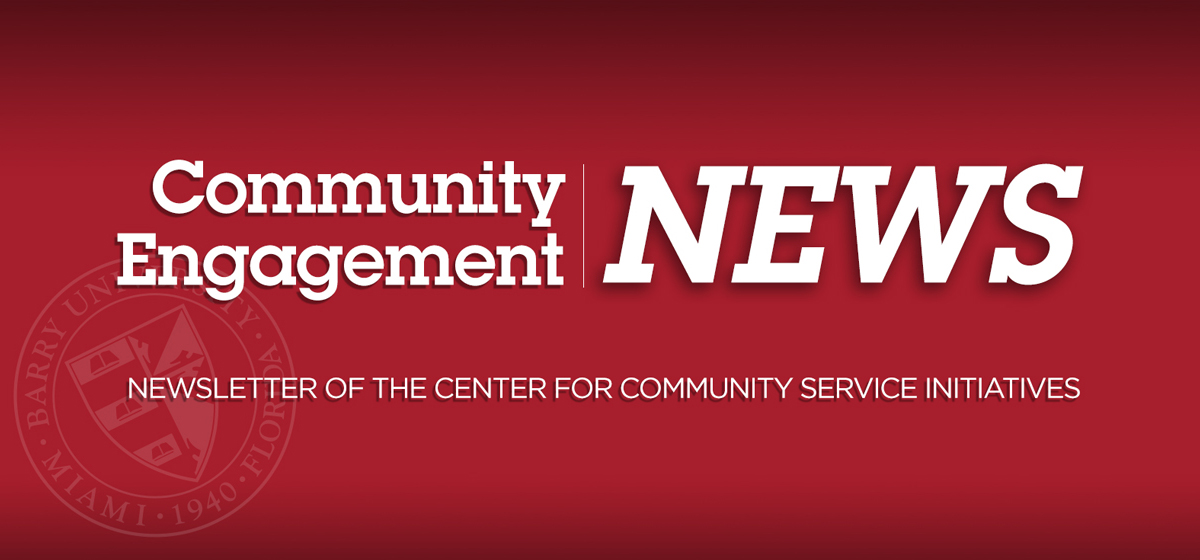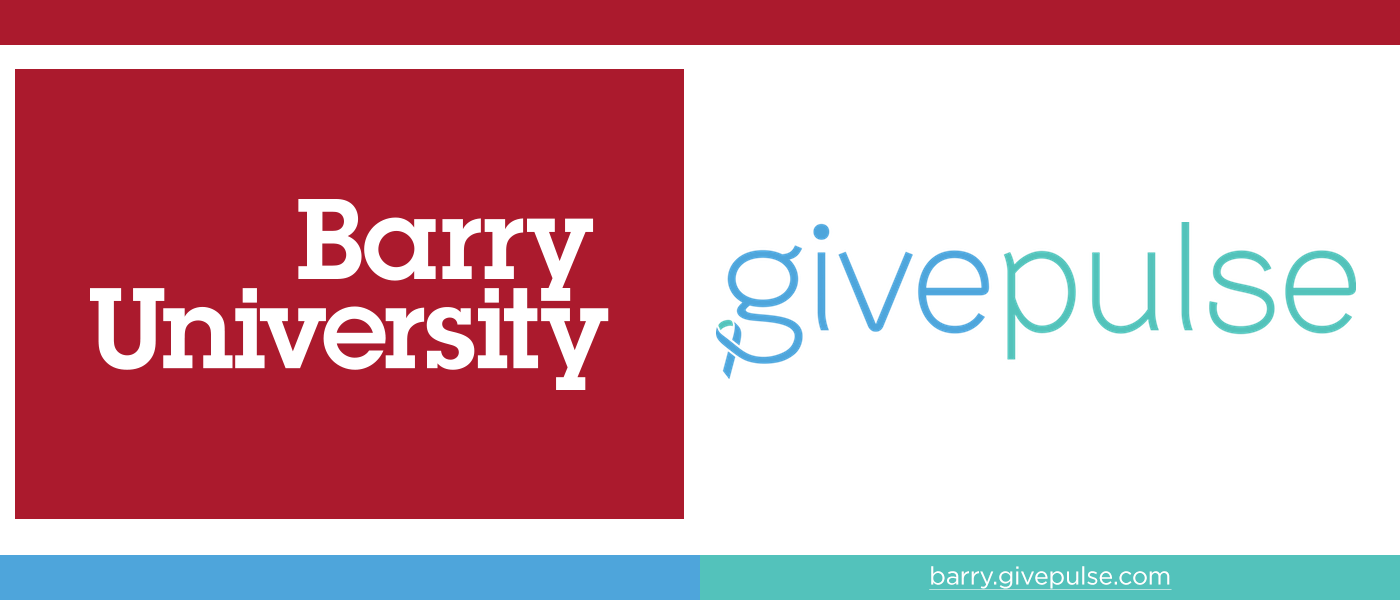May 24, 2021
IN THIS ISSUE
- Barry Urban Garden Produce Being Distributed Through Community Fridges in Miami-Dade
- Time Devoted to Collaborative Service Projects Remains High Despite COVID-19
- Steering Committee Formed to Advance Partnership Between University and Neighborhood
- Interdisciplinary Faculty Group to be Presenters at International Conference in September
Barry Urban Garden Produce Being Distributed Through Community Fridges In Miami-Dade

The small garden has produced a bountiful harvest. (CCSI/Barry Urban Garden photos)
Produce from the Barry Urban Garden—aka The BUG—is being distributed through community fridges in Miami-Dade County.
The small garden has produced an abundance of tomatoes and a variety of vegetables—including celery, cucumbers, kale, and lettuce—which have been donated to community fridges in Little Haiti, Wynwood, and Hialeah.
“Pineapples and bananas are growing well and will soon be harvested,” said BUG Facilitator Kaitlyn Gallagher. “We may take some of the produce to Overtown and Coconut Grove, where community fridges are also located.”
Community Fridges
Community fridges offer free food, from fresh produce to fully cooked meals, to neighborhoods in need. The need for community fridges became more urgent because of the coronavirus (COVID-19) pandemic. They are a critical source of food especially in neighborhoods where traditional forms of food assistance are difficult to access. For example, individuals without cars are often unable to go to food bank locations. Furthermore, according to a report, some food distribution sites in Miami have adopted an automobile-only policy because of COVID-19 concerns, and they turn away individuals who arrive by foot or on bicycles.

Fruits and vegetables from the campus garden have been distributed via community fridges in Little Haiti, Wynwood, and Hialeah. (Buddy System MIA photos)
A grassroots response to food insecurity, the 10 refrigerators in seven neighborhoods are part of the Miami Community Fridge network. Richmond Heights and Homestead are two of the locations.
In August 2020, the grassroots organization Buddy System MIA, Inc. began placing refrigerators filled with fresh food across Miami-Dade. Buddy System’s mission is “to empower neighbors to support neighbors, beginning with food access and continuing with viable support for long-term change.”
“Take what you need, leave what you can” is the organization’s unofficial motto.
Summer Plans
The BUG is a values-based community agriculture initiative that provides produce to low-income residents in Miami-Dade neighborhoods. It is an experiential learning site for students and will offer engaged scholarship opportunities to faculty.
With springtime coming to an end, preparations are already underway for the summer growing season at The BUG.
“Plans for the summer months include planting seasonal crops, adding more signage, and creating a butterfly garden,” Gallagher reported.
Time Devoted To Collaborative Service Projects Remains High Despite Covid-19
Students Log 3,200 Hours In Spring Semester Service-Learning Projects



During the spring semester, students worked supported the work of such community partners as PACT (People Acting for Community Together), Sant La Neighborhood Center, A New Start, and the Coalition of Immokalee Workers.
In the face of the 2019 coronavirus disease (COVID-19), the time students devoted to collaborative service projects benefiting local organizations and the communities they serve remained high throughout the spring semester. The community-focused projects have yielded positive, mutually beneficially outcomes.
More than 200 students taking designated service-learning and other community-engaged courses in art, communication, English, social work, sociology, and theology provided over 3,200 hours of service.
The students were assigned to several social service agencies, educational institutions, and faith-based organizations, where they rendered both project- and event-related service. Among the community partners were PACT (People Acting for Community Together), Church World Service South Florida, the Coalition of Immokalee Workers, and the Haitian Youth and Community Center of Florida.
Dr. Heather Johnson Desiral, project assistant for Barry’s Quality Enhancement Plan (QEP), reported that students provided online and onsite service, meeting needs identified largely by community agencies.
Students racked up a considerable number of hours completing the service-learning requirements of Service-Learning and Social Work Practice. The instructors of the two course sections were Preeti Charania, LCSW, and Liz Valdez James, MSW.
From tutoring “at-risk” youngsters to collecting data as part of a neighborhood assessment, social work students provided significant service to local communities throughout the semester. The neighborhood assessment—conducted as a community-based research project in La Paloma, the unincorporated neighborhood adjacent to Barry’s main campus—was part of the service-learning/civic engagement module focused on “fostering resilient communities.”

La Paloma Neighborhood News: Social work student Jessica Chery on the radio. The weekly news show was broadcast on The Mix, 99.5.
The students worked closely with AmeriCorps VISTA (Volunteers in Service to America) member Faith AcFalle to complete the requirements of the module. “Fostering Resilient Communities” included La Paloma Neighborhood News, a weekly broadcast on Barry Student Radio: The Mix, 99.5.
Another group of social work students assisted PACT with hosting its annual Nehemiah Action. And a third group assisted Church World Service South Florida with its refugee resettlement program.
During the spring semester, students engaged in service-learning projects largely as part of the following courses:
- Perspective Consciousness and Social Justice—Faculty: Dr. Laura Finley, Dr. Lisa Konzcal, and Aurelie La Torre;
- Introduction to Communication—Faculty: Dr. Katherine Nelson;
- Dimensions of Culture—Faculty: Dr. Pawena Sirimangkala;
- Poster Design—Faculty: Nicole Beltran;
- Theology: Faith, Beliefs, and Traditions—Faculty: Karen Stalnaker, Fr. Cristóbal Torres, Sr. Mary Frances Fleischaker, and others.
In addition, Dr. Andrea Greenbaum’s Technical and Scientific Research, Writing, and Editing students improved the websites of four local community organizations.
During the School of Social Work Service-Leaning Symposium earlier this month, students commented positively on the benefits they derived from their experiences serving the community through various organizations. For Bianca St. Julien, for example, the experience at A New Start was deeply touching as it opened her eyes to the needs of her own community.
Heaven Jeffries, who also served at A New Start, expressed pride in her efforts to build rapport with her assigned client. “I was able to make a difference in my client’s life,” she said, “and … he was able to make a difference in mine.”
Administrators at A New Start: Financial and Social Services, Breakthrough Miami, Camillus House, Fed Fam 4 Life, Haitian Youth and Community Center of Florida, and Sant La Haitian Neighborhood Center thanked the students for the service they provided.
Steering Committee Formed To Advance Partnership Between University And Neighborhood
To advance the partnership between Barry and La Paloma, a steering committee was formed recently. The committee includes senior administrators and staff members from Barry as well as neighborhood residents.
La Paloma is an unincorporated neighborhood adjacent to the university’s main campus. The neighborhood has long been a site for civic engagement projects, including projects in designated service-learning courses.
The steering committee is charged with providing oversight of collaborative service projects within a “resilient communities” framework.
As defined by Post Carbon Institute, community resilience is “the ability of a community to maintain and evolve its identity in the face of both short-term and long-term changes while cultivating environmental, social, and economic sustainability.”
Co-chaired by Dr. Glenn Bowen (Center for Community Service Initiatives) and Dr. Celeste Landeros (College of Arts and Sciences), the steering committee includes Dr. Jill Farrell (School of Education), Dr. Roxanne Davies (Office of Mission Engagement), Sister Mary Frances Fleischaker (College of Arts and Sciences), and Liz James (CCSI).
Dr. Phyllis Scott, retiring dean of the School of Social Work, and Dr. Joan Phillips, then dean of the School of Business, have contributed to the development of the partnership. So, too, has Lloyd Van Bylevelt, president of the Barry-based Peace Education Foundation.
Faith AcFalle, an AmeriCorps VISTA (Volunteers in Service to America) member in the Office of Mission Engagement, has provided project development and implementation assistance.


The steering committee is charged with providing oversight of collaborative service projects within a “resilient communities” framework.
Interdisciplinary Faculty Group To Be Presenters At International Conference In September


An interdisciplinary group of faculty members will be presenters at an international conference on community-engaged scholarship in the fall.
Dr. Dale Hartz, Dr. Katsiaryna Matusevich, Dr. Sheila McMahon, and Noemi Marquez will make a workshop presentation titled “Going Beyond Your Building: How to Build Successful Interdisciplinary Faculty Collaborations” at the 2021 Engagement Scholarship Consortium (ESC) Annual Conference.
Hartz is an assistant professor of management in the School of Business; Matusevich is an associate professor of human resource development in the School of Education; McMahon is an assistant professor of social work; and Marquez is an adjunct faculty member in the School of Social Work.
The virtual conference, on September 13–15, is being organized around the theme “Creating Connections and Expending Possibilities.”
The Pennsylvania State University and the ESC Eastern Region will be the conference hosts.
“We received a significant increase in high-quality workshop proposals this year,” said Nicholas J. Rowland, a conference spokesman from Penn State.
Dr. Manuel Tejeda, interim dean of the School of Business, has congratulated Hartz and his colleagues on the acceptance of their workshop presentation proposal.
HONORS PROGRAM: Students in the Honors Program have learned about Barry’s core commitments “in ways that will be very hard to forget,” thanks to “a well-designed service-learning project.” Dr. Pawena “Winnie” Sirimangkala, the program director, comments on the experience.
BARRY SERVICE CORPS: Community partners have praised Barry Service Corps (BSC) members for their service this academic year. The BSC members participated in Federal Work-Study Community Service—a program that required creativity and innovation during the COVID-19 pandemic.
SERVICE-LEARNING DESIGNATION: Another course in the Andreas School of Business has been approved for the service-learning designation.
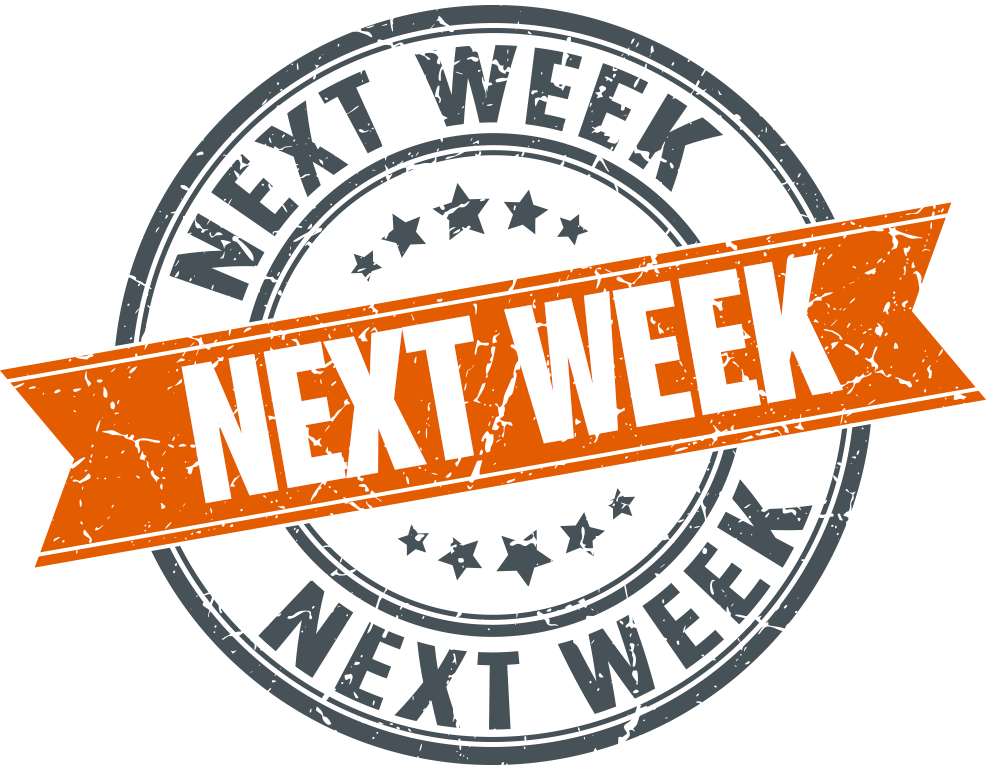
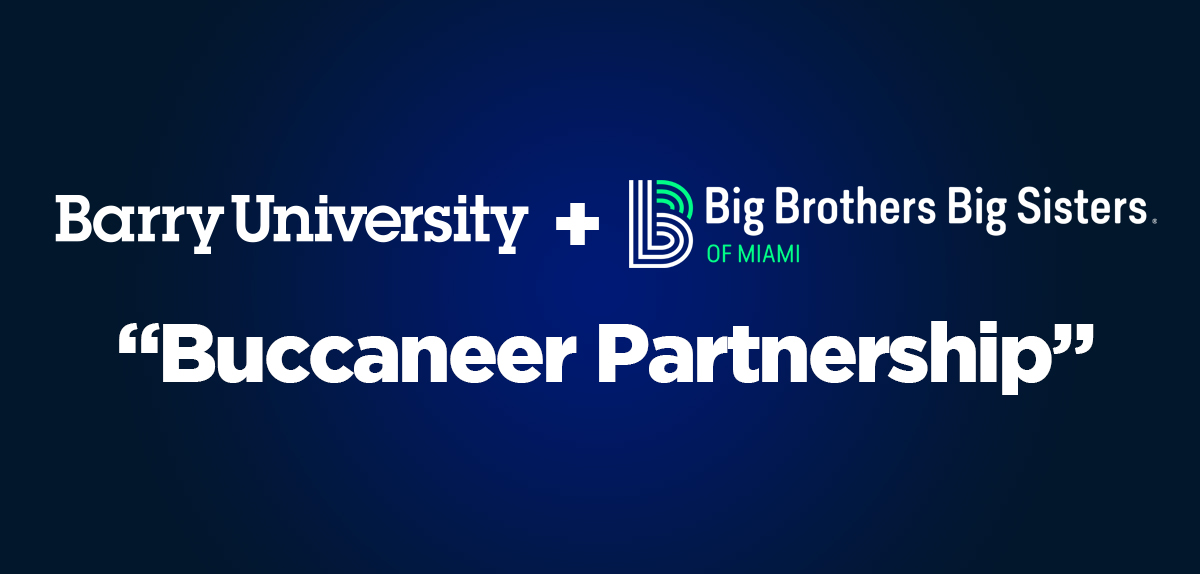
Apply to become a mentor (aka Big): https://bbbsmiami.org/volunteer/apply/
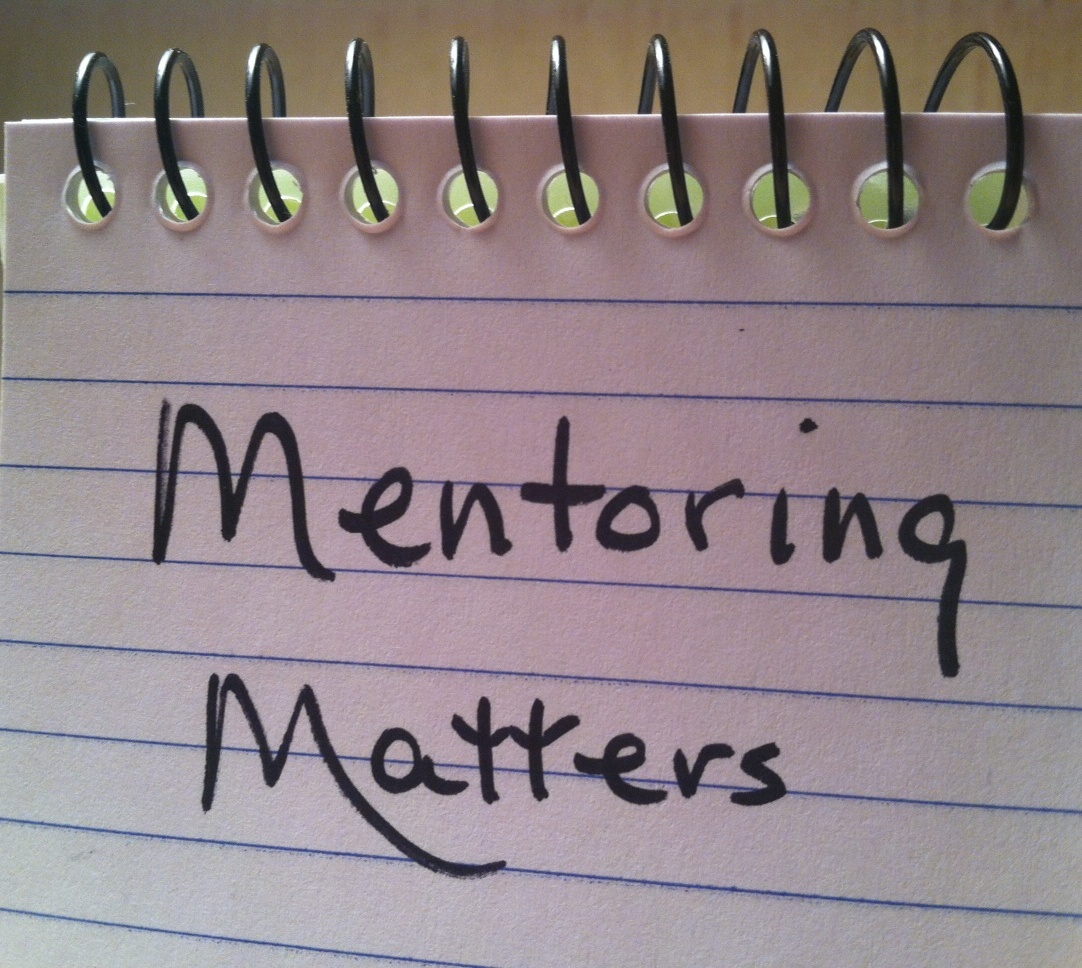

11300 NE 2nd Avenue
Adrian 208
Miami Shores, FL 33161

